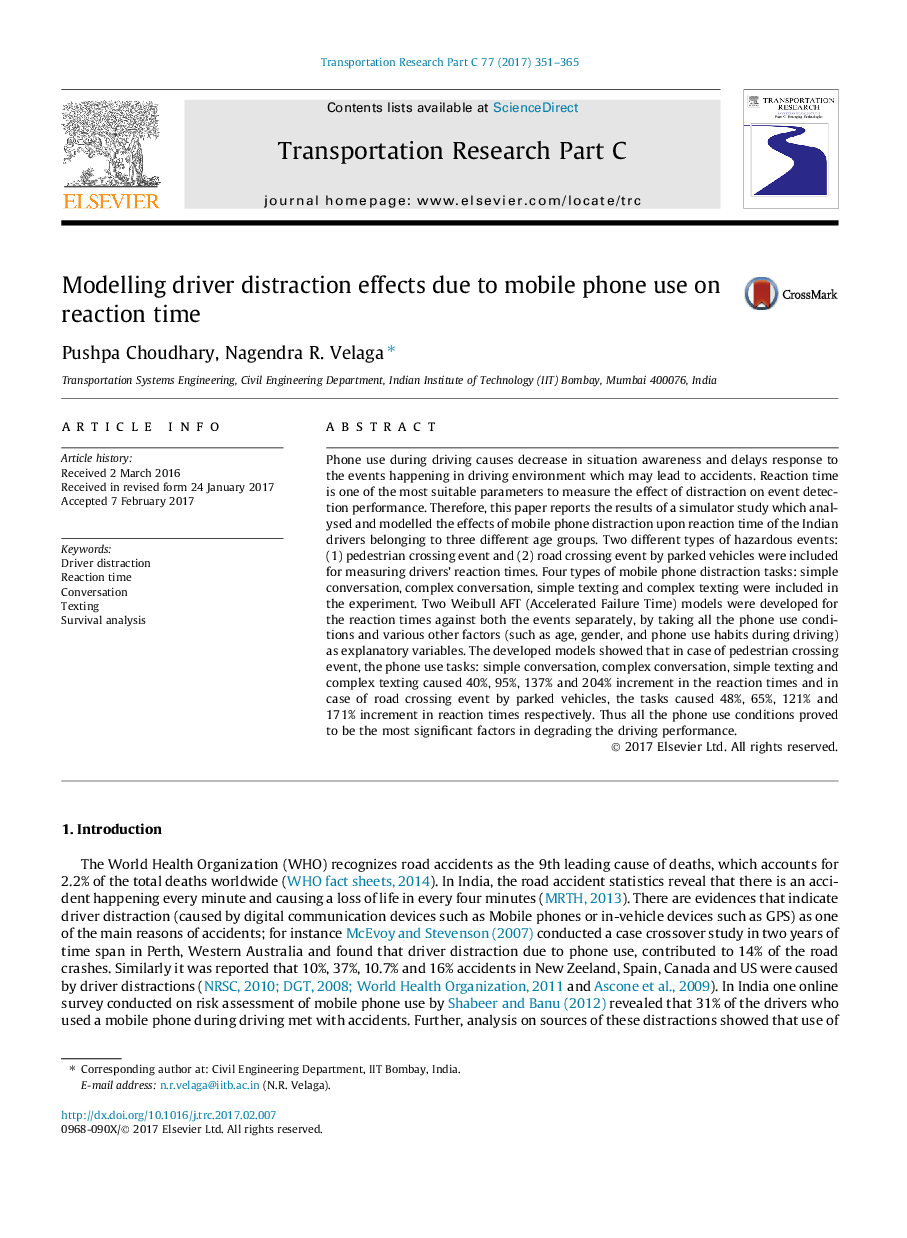| Article ID | Journal | Published Year | Pages | File Type |
|---|---|---|---|---|
| 4968635 | Transportation Research Part C: Emerging Technologies | 2017 | 15 Pages |
Abstract
Phone use during driving causes decrease in situation awareness and delays response to the events happening in driving environment which may lead to accidents. Reaction time is one of the most suitable parameters to measure the effect of distraction on event detection performance. Therefore, this paper reports the results of a simulator study which analysed and modelled the effects of mobile phone distraction upon reaction time of the Indian drivers belonging to three different age groups. Two different types of hazardous events: (1) pedestrian crossing event and (2) road crossing event by parked vehicles were included for measuring drivers' reaction times. Four types of mobile phone distraction tasks: simple conversation, complex conversation, simple texting and complex texting were included in the experiment. Two Weibull AFT (Accelerated Failure Time) models were developed for the reaction times against both the events separately, by taking all the phone use conditions and various other factors (such as age, gender, and phone use habits during driving) as explanatory variables. The developed models showed that in case of pedestrian crossing event, the phone use tasks: simple conversation, complex conversation, simple texting and complex texting caused 40%, 95%, 137% and 204% increment in the reaction times and in case of road crossing event by parked vehicles, the tasks caused 48%, 65%, 121% and 171% increment in reaction times respectively. Thus all the phone use conditions proved to be the most significant factors in degrading the driving performance.
Related Topics
Physical Sciences and Engineering
Computer Science
Computer Science Applications
Authors
Pushpa Choudhary, Nagendra R. Velaga,
